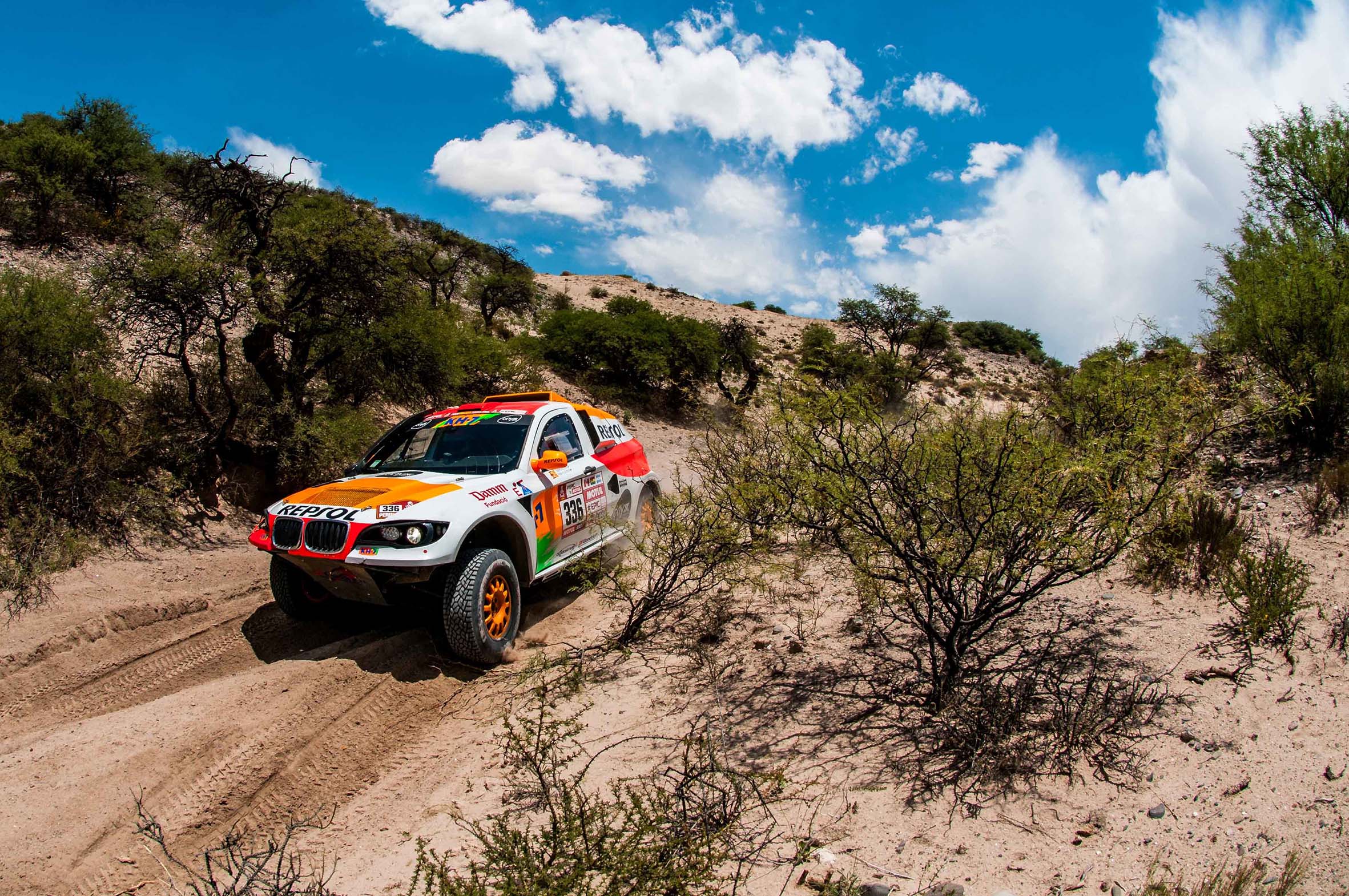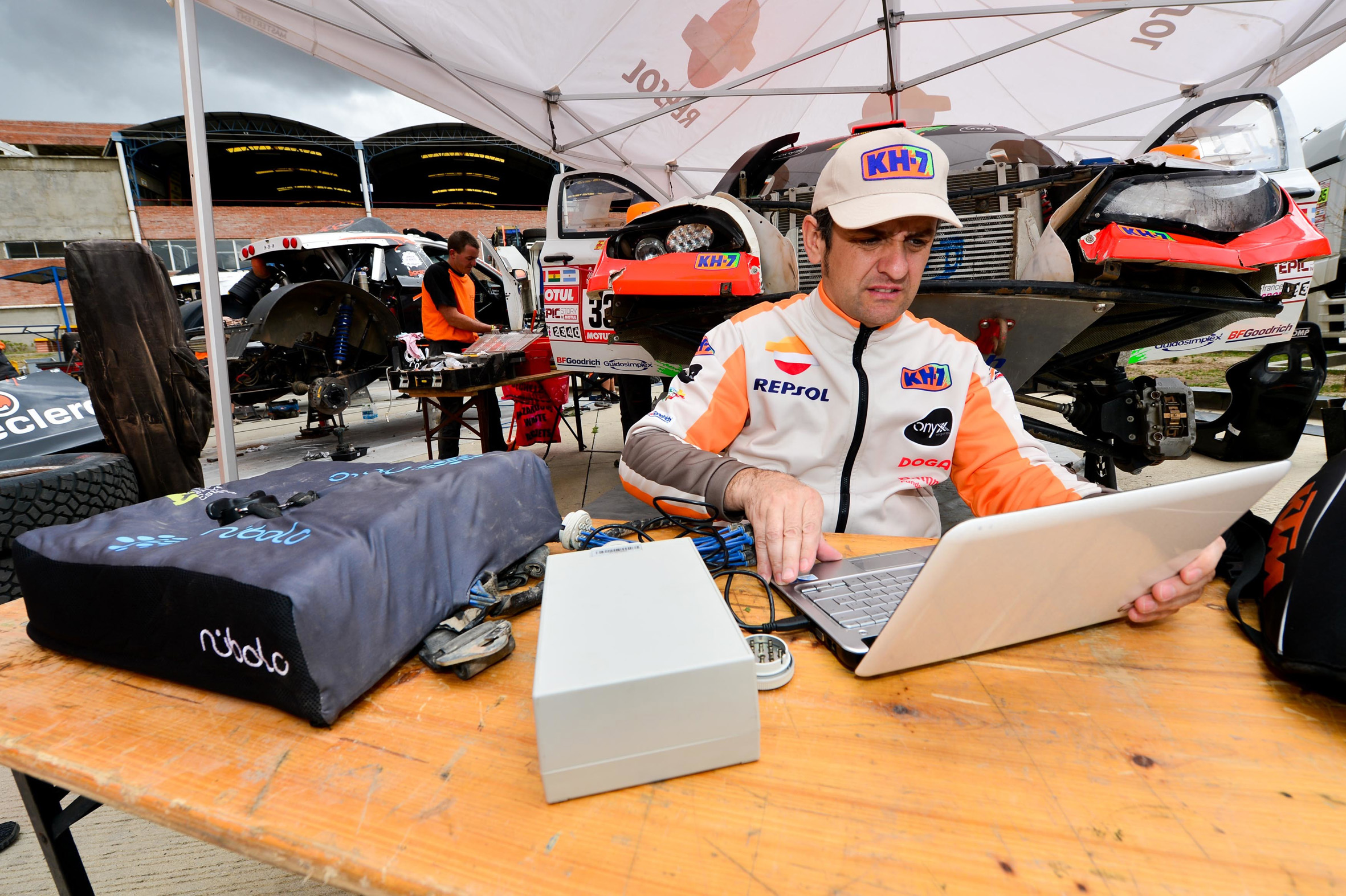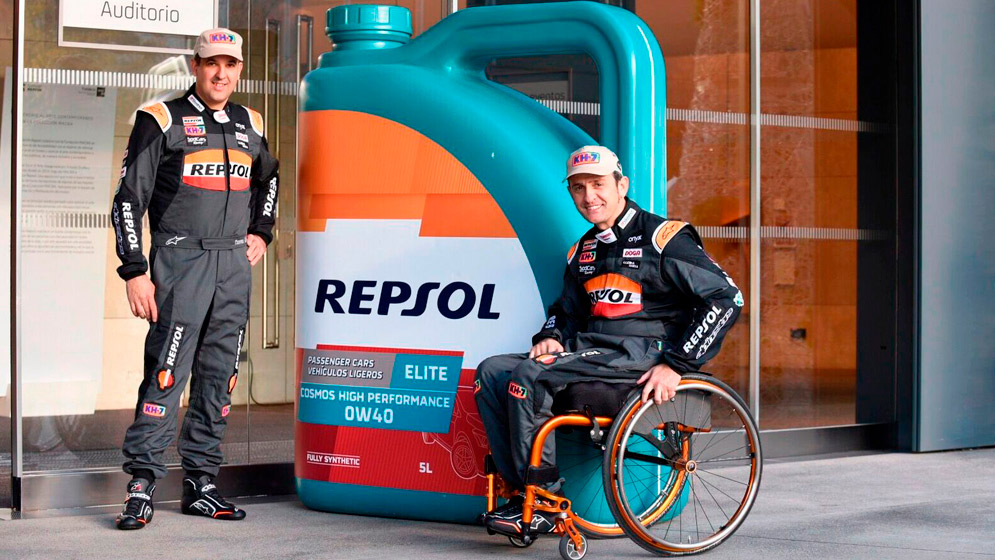Each obstacle is different: we enjoyed the dunes, the change in altitude is physically demanding and with a river you need to have faith and tell yourself “I hope I can cross and hopefully without any problems.”
BR: Hi Isidre, it’s a pleasure to have you here with us. We’re aware that this year the Dakar Rally was tough and very complicated. What’s your overall assessment?
IE: I think that 2018 has been the most complicated edition in which we’ve competed in South America. Last year and the 2009 edition, in which I competed, weren’t so complete. The difference was the dune stage in Peru, which was decisive for us. The Dakar organisation designed a route worthy of the 40th anniversary of the rally. It was very complex not only as to difficult terrain, but also in terms of navigation. Also, the stage times were longer than ever. The fact that it was so tough adds even more value to what we’ve achieved.
BR: Do you recall any particularly bad moments in the rally?
IE: Since the stages were longer, there was one where we had to begin the last special 140 km stage at five in the afternoon. We drove 50 km at night through very complicated terrain with sand, mud and poor visibility, as the car’s headlights were insufficient. Another very difficult stage was crossing Peru into Bolivia; the change was radical. We went from dunes and good weather at 500 metres above sea level to an altitude of 3,800 metres surrounded by snow; it was a very drastic change.

BR: Of all these obstacles (snow, dunes, rivers), which did you enjoy the most and which were the hardest to overcome?
IE: Naturally, before beginning the rally we analyse the route and look at all the obstacles. But one thing is to study them on paper and another what you actually encounter. I think the stage we enjoyed the most was the dune stage in Peru. It was tough going but the feeling of overcoming them was very rewarding. Moreover, the change in altitude and temperature is physically very demanding because you can never adapt as well and as quickly as you’d like. Finally, rivers are risky; when you decide to cross it’s “all or nothing”: either you manage to cross or you become trapped. Each obstacle is different: we enjoyed the dunes, the change in altitude is physically demanding and with a river you need to have faith and tell yourself “I hope I can cross and hopefully without any problems.”
BR: To what extent has this result affected your copilot, Txema?
IE: It’s true that I can only speak highly of Txema. He did an excellent job. In my case he has a dual function which is decisive: he tells me where I have to go; he’s the navigator and if he makes a mistake we’d become lost. Txema was excellent in this regard. Moreover, when there’s a problem I don’t get out of the car. Whether because we get stuck in a dune or because of a mechanical problem -a flat tyre, something breaks in the car…- he has to fix everything. Therefore, for me Txema is a guarantee, he did an impeccable job and we’re both very happy about that. I’m very grateful to him in that sense.

BR: Despite all the difficulties, would you say you enjoyed the Dakar Rally?
IE: If it had been an easy rally, crossing the finishing line wouldn’t have been as satisfying as it was. There were very critical situations, which we overcame, and that’s great. There are times that are naturally very difficult, but we’re there to overcome them. Otherwise, if we didn’t have to face this kind of situations, it wouldn’t be the toughest rally in the world. This year we found what people who love this sport seek, and if there’s a rally that gives us what we crave, that’s what we want to achieve.
BR: So overcoming the challenge requires suffering?
IE: Everything has a limit -he laughs- everything’s wonderful and acceptable provided you overcome it. When you’re stuck there, naturally it’s not. When you don’t achieve your goal, it’s very frustrating.
BR: In a previous interview you told us that you have to strike a balance between how much the pilot suffers and how much the car suffers. Was this balance maintained?
IE: The balance was maintained. Naturally, the pilot is also responsible for how much the car suffers. The terrain is difficult and you know there are dunes and we have to cross rivers that will affect the car. A driver’s demands on the car depend on what we think it can endure and it is our responsibility to find that balance. If you cross the limit, the car won’t complain, it will just stall. Fortunately that wasn’t our case.

BR: Do you think there’s room for improvement in 2019?
IE: There’s room for improvement in both the car and the team. The car specifically has a lot of potential and details that need refining. We’re a team that understands that we have to improve constantly and we’re looking forward to doing so for next year’s rally. We have plans to adapt the vehicle to the new regulations, giving the suspension more room, which would allow us to change the tyres. We’re well aware of our weaknesses in this edition, we’ve taken note and we know what we have to do to improve.
BR: Do you think Repsol lubricants helped in terms of engine performance?
IE: Repsol lubricants give us the guarantee that we can take car mechanics to the limit. It’s more than 45 years of experience in the rally and it’s a privilege to be able to apply all that accumulated experience to our vehicle. Also, the fact that we can improve further in that respect motivates us even more. Whenever we change the oil, we take samples of the used lubricant and send it to the Repsol Technology Lab in Móstoles, where they analyse how it affects car mechanics. This means that next year we’ll have an even better lubricant. We’re very grateful for this continuous improvement and the possibility of contributing to it.

BR: Are you going to take a vacation or back to training?
IE:Please, I need a break! We’ve just come back from the Dakar Rally and we need to take a breather. It’s also the perfect time to reflect on how things went and how we can improve. In a month and a half I’ll start preparing the 2019 Dakar Rally.
BR: In the meantime will you be following the 2018 MotoGP season?
IE: Of course I’m going to follow it! I can’t wait to see the pre-season team training sessions. Also, we share a close friendship with Marc, especially because we live near each other.
BR: Thanks Isidre. We hope you enjoy the MotoGP season as much as we enjoyed watching you in the 2018 Dakar Rally!


 Join Us
Join Us  Join Us
Join Us 